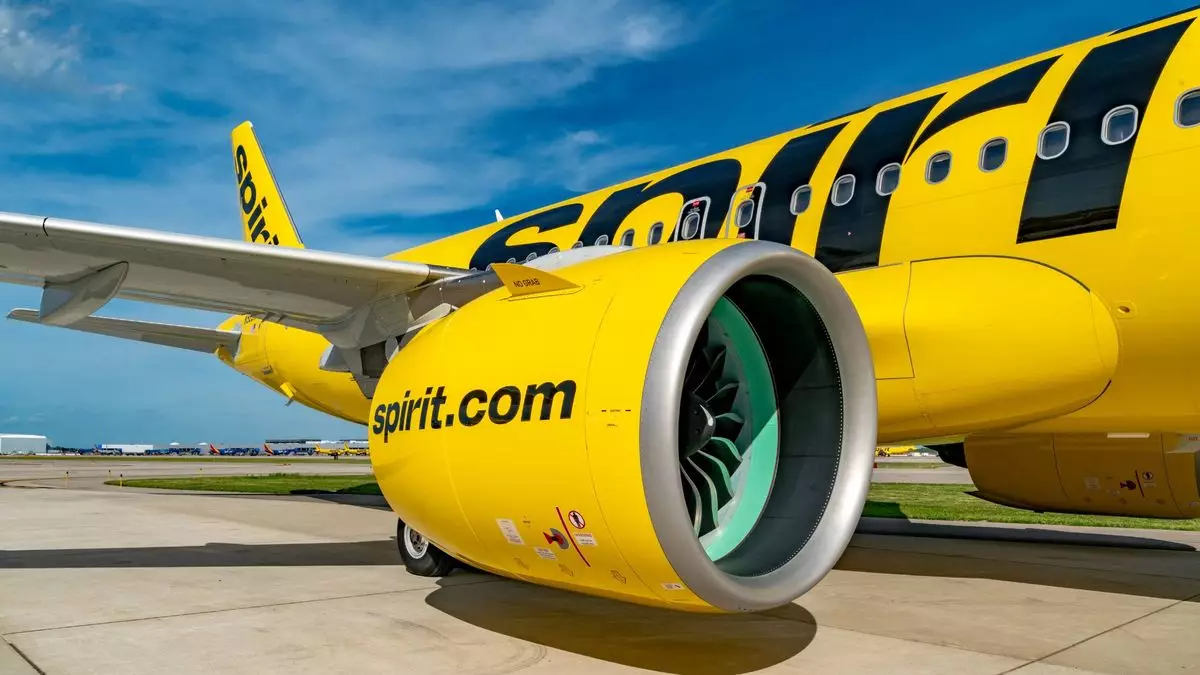Spirit Airlines recently announced an agreement with Airbus to defer the delivery of several aircraft, affecting planes that were initially set to arrive between 2025 and 2026. This delay has been extended to 2030 and 2031, resulting in significant changes to the airline’s fleet schedule. The decision is expected to have a substantial impact on Spirit’s financial situation, providing a boost of $340 million in liquidity over the next two years.
The deferral of these aircraft deliveries, in conjunction with the grounding of planes for engine inspections, has led to Spirit making the difficult decision to furlough 260 pilots starting on September 1st. The airline anticipates that an average of 26 Airbus A320neo planes will be out of service this year due to engine assessments, potentially resulting in further operational challenges. Despite having $1.3 billion in liquidity as of December 31st, Spirit is scrambling to strengthen its financial position, including exploring options to refinance $1.1 billion in loyalty program debt due in September 2025.
Spirit CEO Ted Christie emphasized the importance of the agreement with Airbus in the airline’s broader efforts to improve profitability and fortify its balance sheet. By deferring these aircraft deliveries, Spirit aims to streamline its operations and adapt to a shifting competitive landscape. The increased liquidity from the deal is seen as a vital step towards financial stability and eventual profitability. The revised fleet schedule will result in Spirit having 219 aircraft by the end of next year, a reduction from the previous plan of 234 planes. It is worth noting that Spirit exclusively operates Airbus aircraft.
While the deferral of aircraft deliveries presents immediate financial benefits for Spirit Airlines, the furlough of pilots and the grounding of planes raise concerns about operational efficiency and customer service. The airline will need to navigate these challenges carefully to ensure a smooth transition and minimize disruptions for passengers. On the other hand, the agreement with Airbus offers an opportunity for Spirit to realign its business strategy, focus on core operations, and emerge stronger in a post-pandemic market. By leveraging enhanced liquidity and a more streamlined fleet, Spirit can position itself for sustained growth and profitability in the long run.
Spirit Airlines’ decision to defer aircraft deliveries marks a significant development in the airline industry, reflecting the ongoing efforts of carriers to adapt to a rapidly changing environment. The strategic implications of this agreement with Airbus will shape Spirit’s trajectory in the coming years, influencing its financial health, operational efficiency, and competitive positioning. As the airline industry continues to evolve, organizations like Spirit must remain agile, innovative, and resilient to thrive in a challenging market landscape.

